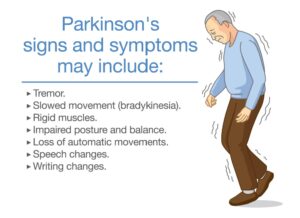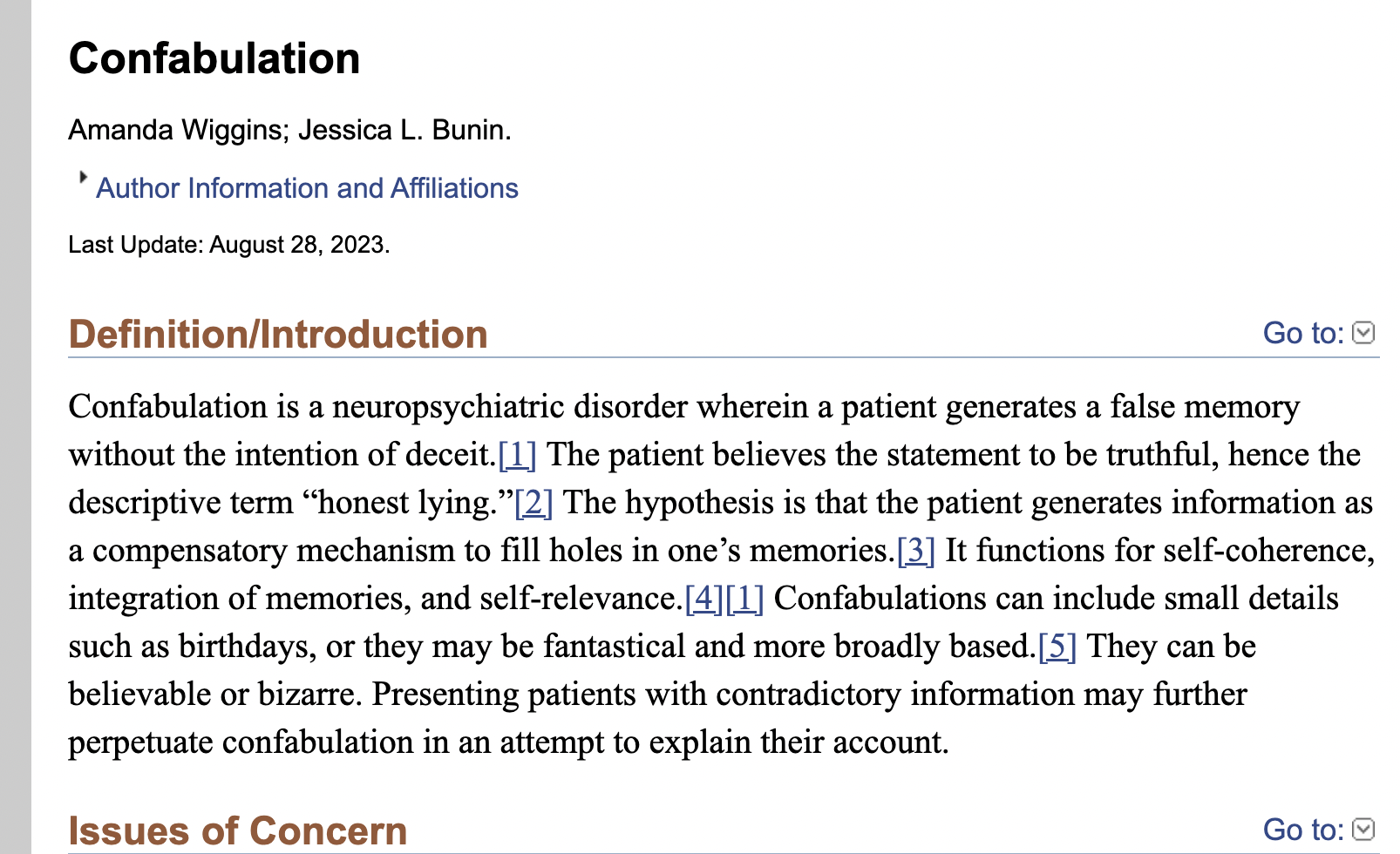What's On This Page?
ToggleMemory shapes who we are, grounding our daily interactions, relationships, and self-understanding. But what happens when those memories are unexpectedly altered or filled in with details that aren’t true? This phenomenon, known as confabulation, occurs when someone unknowingly creates or recalls incorrect memories with complete confidence.
You may think they are lying, but they are not – they are so sure of their belief, they’d probably pass a lie detector test. Rather than lying with intent to deceive, the person genuinely believes these constructed memories to be real, filling in the gaps during their recall with plausible but inaccurate details. Confabulation is frequently (and mistakenly) referred to as a gaffe. But a gaffe is totally different from confabulation.
The term ‘gaffe’ is frequently used in the media and by commentators, even when ‘confabulation’ would be a more accurate description. This subtle distinction is often overlooked, likely because it requires a deeper understanding of cognitive processes that many may not have studied.
Confabulation is very common in people with dementia, or those who’ve suffered a traumatic brain injury (TBI), as their brain attempts to compensate for missing or fuzzy memories. Understanding confabulation is key to fostering empathy and reducing misunderstandings.
Confabulation is sometimes called “honest lying” and maybe that description is fair… although unintentional, these memory inaccuracies can have wide-ranging effects, especially on personal relationships and health outcomes, impacting not only the person talking, but also the people around them. There are serious medical conditions associated with it.
Repeated episodes of confabulation will erode trust and credibility. It causes arguments. Adult children, as well as spouses or caregivers become frustrated and feel gaslit if they don’t realize what’s going on with the person doing the confabulation. Scroll below for a complete list of medical conditions and causes for it.
Examples of Confabulation
Here are a few relatable examples of confabulation that may occur in everyday life. Perhaps you’ve been in a similar situation:
Example 1: Memory Lapse in a Story
Imagine a man confidently recalling and sharing details about a holiday hike he took in Italy. However, their family knows it actually happened in Canada, and they’ve never been to Italy. This person isn’t lying on purpose – they genuinely believe their version. This is an example of confabulation, where memory gaps are unconsciously filled with details that seem accurate.
Example 2: Messing Up Details
Someone’s asked about their health, and how they’re feeling. Unable to remember in the moment, they say, “Oh, I saw Dr. Jones, and he said my health is just fine,” even though they actually saw a different doctor, and were advised to get an MRI. Here, the patient’s brain has filled in gaps with incorrect but plausable details.
Example 3: Forgotten Visit
Suppose someone with memory impairment is asked if they’ve seen a friend recently. They say, “Oh yeah, she came over yesterday, and we had tea together.” But they haven’t seen their friend in months. This response is their brain’s way of filling in the blanks. Elderly people do this a lot. With dementia or a history or TBI, exact timelines and dates get fuzzy.
In each case of confabulation, the person has filled in memory gaps with plausable, but inaccurate details.
These examples help highlight how confabulation is a genuine experience of memory distortion, often without the person realizing they are incorrect.
One thing is that confabulation can affect anyone, not just people with a specific health condition. Some people hear these confabulations, and call it a “gaffe” but it’s not a gaffe. Let me explain how it differs.
Confabulation vs. Gaffes
A ‘gaffe’ refers to an unintentional verbal slip or awkward statement, often due to talking too fast or exaggeration. Unlike a lie, which is deliberate, and fast-paced speech errors, which are superficial, confabulation involves the brain unknowingly filling in memory gaps with incorrect but credible details, rooted in cognitive dysfunction, rather than intent. Then there’s hyperbolic speech. Understanding all the subtle distinctions will help you determine what’s going on with people from now on.
- Hyperbole: After waiting in line for ten minutes, Lisa said, ‘I’ve been standing here for a century,’ which was just hyperbole to emphasize her frustration. This one maybe technically dubbed a gaffe because it comes across awkwardly, it’s close anyway.
- Fast-paced Speech Error: I’ve done this one myself!!! While giving a speech at a global health summit in Johannesburg, South Africa, I mistakenly said, “Supplements can sometimes cause constipation when taken with other medications,” instead of ‘Supplements can sometimes cause confusion when taken with other medications.’ It was a simple, fast-paced speech error caused by talking quickly, and I corrected it with a smile and moved on. This is an example of a gaffe that happens when thoughts race ahead of words (for me combined with jet lag fatigue). This is a perfect example of a gaffe.
- Confabulation: “Mark, who has memory issues, confidently shared a story about winning a local marathon, even though it never happened—his brain filled in the memory gaps, which is an example of confabulation.” This is NOT an example of a gaffe, it’s confabulation which is a symptom of a medical problem such as dementia.
- Mistake Quickly Realized: While on a hectic campaign tour, the politician stepped up to the podium and said, ‘I’m so happy to be here in Ohio!’ only to realize two seconds later that he is actually in Iowa (and just left Ohio). He quickly corrects himself, laughing off the mistake. This may easily occur due to the fast pace of travel and numerous speaking engagements in different states.
It’s not dementia or cognitive dysfunction, it’s a gaffe. - Lie: John told his boss he was sick to avoid a meeting, even though he was perfectly healthy—that was an intentional lie.
This is NOT an example of a gaffe, it’s intention is to deceive.
As you can see from my examples, confabulation is not intentional and neither are gaffes. The two are very different, but again, the terms are constantly misused. And furthermore, the gaffe does not require medical intervention, but confabulation does.
10 Causes of Confabulation
Fundamentally speaking, confabulation isn’t driven by the deliberate intent to mislead. The person speaking truly believes what they are saying, even if it’s totally whacked or ridiculous. It’s the brain’s way of piecing together information to create a story that makes sense. But WHY is the question, why is it even happening? Here are the 10 main causes.
1. Mild Brain Aneurysm or TBI: This type of memory gap in the example above may occur if the person experiences a head injury or TBI.
For example, he may have had a brain aneurysm (mild and unruptured), or maybe suffered a concussion in a car wreck years ago, or maybe fell off a ladder, or whatever… the mild head injury could cause confabulation such as this.
Sometimes, minor confabulation happens to people without neurological issues. Say someone is recounting a conversation they had with a friend a few years ago.
They recall the details of the conversation as if the friend was talking about a vacation in Hawaii, recalling the beach, the hot weather, the beautiful palm trees and sunsets, etc.
Later on, the friend clarifies that the conversation was actually about a trip to Florida. While the storyteller confidently “remembered” it as Hawaii, their brain filled in a detail that felt plausible but was technically inaccurate. This could happen to pretty much anyone if they’ve traveled during their lifetime and just got confused for a minute.
2. Korsakoff Syndrome: This is related to vitamin B1 deficiency and can occur from a few different causes, but it’s usually from long-term alcohol consumption. So people who drink for years should consider B complex (especially thiamine) supplementation to protect their brain function. And if someone you know confabulates it’s possible they drink a lot, or have a history of alcohol consumption. You can read more about a related condition by CLICKING HERE.

3. Dementia and Cognitive Decline: Conditions such as Alzheimer’s disease and other forms of dementia can lead to memory gaps that the brain attempts to fill with plausible, yet inaccurate, information. As cognitive function declines, a person’s brain may struggle to retrieve or reconstruct memories, leading to more and more confabulation.
This can be very frustrating for people around the individual because they may not realize that the cognitive decline has become this profound.
4. Stroke: A mild stroke can damage specific areas of the brain responsible for memory and cognition. Depending on the severity and location of the brain damage, this can result in memory distortions or confabulated memories as the brain attempts to make sense of missing pieces.
5. Neurodegenerative Disorders: Conditions like Parkinson’s disease, Huntington’s disease, or multiple sclerosis can also contribute to confabulation. These disorders affect brain structures involved in memory and cognition, which may result in memory gaps being filled with false but coherent details. With Parkinson’s disease, the part of the brain that’s affected (as it pertains to confabulation) is the frontal lobe, basal ganglia and pre-frontal cortex.

6. Mental Health Disorders: Certain psychiatric conditions, such as schizophrenia and bipolar disorder, can include confabulation as a symptom. In these cases, the person might have difficulty distinguishing between reality and their brain’s attempt to create coherent stories from fragmented or incomplete memories.
These individuals may fully believe their memory reconstructions, making it challenging for them to differentiate between reality and constructed memories.
While ‘hallucination’ isn’t the right term—and I’m not a psychologist—mental health conditions can also cause occasional confabulation, often signaling a serious underlying issue.
7. Side Effects of Medication: This is my specialty as a pharmacist – the medications! There are so many that I’ve listed them down below for you. The meds involved in confabulation impact the neurotransmitters in the central nervous system. As such, they may impair memory and cognitive function. It is important for me to note that just because a person takes one of those medications does not mean they will confabulate!
8. Sleep Deprivation: Extreme lack of sleep can impact cognitive functions, and increase the risk of creating false memories. It’s more of a contributing factor, than a leading cause. But I want to list it here for completeness.
9. Developmental and Childhood Conditions: Children, especially those with certain learning or developmental disorders, may exhibit confabulation when attempting to recall events or conversations. Their brains might fill in gaps with fabricated details as a way to make sense of incomplete or confusing memories.
10. Psychological Trauma: Traumatic experiences can result in memory distortions as a defense mechanism. It may also occur in people with PTSD. The brain may alter or replace parts of a traumatic memory with different details to protect the individual from distress or to make sense of what happened. You may be interested in my other article, MDMA for PTSD: Benefits, Risks, and Alternative Treatments.
Let’s Discuss the Medications that Cause Confabulation
Confabulation could happen as a side effect whenever the medications disrupt how the brain processes and retrieves memories. If someone experiences confabulation, they may be taking one of the medications listed below. I’ve been a pharmacist for over 30 years. Some medications, especially those that influence the central nervous system, can significantly impact a person’s cognitive function and memory. That may not be their intended use, but it happens.
Like when an older person takes OXYBUTYNIN for their bladder control, it has anticholinergic side effects. If taken for awhile, it can cause them to lose track of the details, hence confabulation.
When certain medications interfere with how the brain processes and retrieves information, it can result in memory distortions or lapses. This disruption may lead to the unintentional creation of false or exaggerated memories, known as confabulations.
These episodes can range from minor inaccuracies to more pronounced memory errors, depending on the type, dosage, and duration of medication use. Understanding which medications carry these risks is important for identifying and managing potential cognitive side effects. Here are the list of medications to consider as one contributing factor to honest lying:
1. Benzodiazepines: Medications like diazepam (Valium), lorazepam (Ativan), and alprazolam (Xanax) are used for anxiety, insomnia and sometimes seizure disorders. They can impair short-term memory and cognitive function, potentially leading to confabulation.
2. Anticholinergic Drugs: These medications, used for conditions such as allergies (e.g., diphenhydramine), overactive bladder (e.g., oxybutynin), and Parkinson’s disease (e.g., benztropine), block acetylcholine and can disrupt memory. Short-term use of antihistamines for pollen or skin rashes won’t do this, it’s the long-term ingestion of the medications that does it.
I have more on the topic of anticholinergic drugs, and how they cause a person to have blurry eyes. Read this article: 7 Key Strategies to Combat Blurry Vision: A Comprehensive Guide
3. Opioids: Pain medications such as oxycodone, hydrocodone, and morphine can affect memory and cognition, particularly when used long-term or in high doses. You might think they cause confabulation because these drugs cause drowsiness, but it’s so much more than that. Allow me to explain.
Opiates cause confabulation by significantly causing an increase in dopamine levels (which is in your brain’s reward pathway), inducing euphoria but disrupting memory formation and retrieval. Opiates also mimic feel-good endorphins by binding to opioid receptors, altering how pain and emotions are processed. This distorts the process of memorizing, and recall.

Additionally, opiates disrupt the balance of glutamate and GABA, two neurotransmitters crucial for proper brain function. Glutamate is needed for proper memory encoding, while GABA is an inhibitory hormone (it is high when you are sleeping). Anyway, the balance of these complex systems become disrupted with chronic use of an opiate. The brain then struggles to accurately store and recall information, filling in gaps with false or fabricated details and there it is – confabulation!
4. Antidepressants: Similarly to the opiates, these drugs impact the balance of endorphins and different hormones like dopamine or serotonin, etc. Some types, particularly tricyclic antidepressants or “TCAs” (like amitriptyline) and certain SSRIs or SNRIs (e.g., paroxetine, venlafaxine), can lead to memory issues and confabulation as a side effect. The TCAs are commonly used in fibromyalgia and other pain syndromes so they’re not entirely used as antidepressants.
5. Antipsychotics: Medications such as risperidone, quetiapine, and olanzapine, used for schizophrenia, bipolar disorder, and other mental health conditions, may impact cognitive function and memory. This category is tough to list because the conditions listed above may include confabulation as a symptom, and so can the meds that treat the issues.
6. Sedatives and Sleep Aids: Drugs like zolpidem (Ambien) and other sleep medications can impair the brain’s ability to consolidate and recall memories.
7. Anticonvulsants: Used to control seizures, medications like topiramate and phenytoin can have side effects that include memory problems and confusion.
8. Beta Blockers: Typically used for high blood pressure and heart conditions (e.g., propranolol, metoprolol), beta-blockers can sometimes cause memory issues, especially in higher doses. The drug-mugging effect of these medications will deplete B vitamins and other neurotransmitters as a result, leading to a higher risk of confabulation.
These medications affect the central nervous system and may impact how the brain processes, stores, and retrieves memories, potentially leading to episodes of confabulation.

Conclusion
Confabulation can be frustrating, but it’s important to understand that it stems from underlying cognitive challenges, not willful deception. Gaffes are different, more like a slip-of-the-tongue.
My goal in presenting this information is not to single out or stigmatize any particular person, but to shed light on the complex causes behind an issue that points to deeper meurological problems. I’d also like to promote informed empathy and support because as we watch our parents age or become their caregivers, we may notice this happening right at home.
Recognizing the various contributors – from brain injuries and neurological disorders to medication side effects, and mental health conditions – helps demystify WHY confabulation occurs and encourages proactive steps for care.
Consulting medical doctors, or psychologists, adjusting medications, or exploring treatment options can make a meaningful difference.
Professionals have diagnostic tools like neuropsychological assessments and memory tests to evaluate cognitive function and identify potential impairment. There are tests now for Parkinson’s and Alzheimer’s. There are many therapeutic equivalents at the pharmacy in case you take a medication that causes you to have a higher risk of confabulation.

Suzy Cohen, has been a licensed pharmacist for over 30 years and believes the best approach to chronic illness is a combination of natural medicine and conventional. She founded her own dietary supplement company specializing in custom-formulas, some of which have patents. With a special focus on functional medicine, thyroid health and drug nutrient depletion, Suzy is the author of several related books including Thyroid Healthy, Drug Muggers, Diabetes Without Drugs, and a nationally syndicated column.




